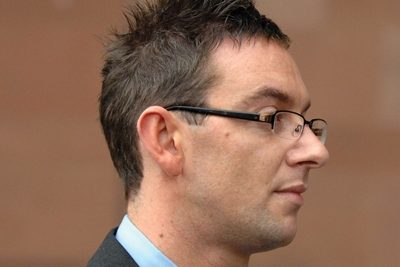The conviction of a former nurse for the murders of four older patients is being put before the Court of Appeal due to the emergence of new expert evidence.
Colin Campbell, formerly known as Colin Norris, has begun his appeal case almost two decades after he was found guilty of murdering four women and attempting to murder a fifth by injecting them with insulin.
All five women were older inpatients on orthopaedic wards in Leeds where Campbell worked as a nurse. Each died after developing severe, unexplained hypoglycaemia.
A five-month trial, which concluded in 2008, saw Campbell convicted of murdering Doris Ludlam, 80, Bridget Bourke, 88, Irene Crookes, 79, and 86-year-old Ethel Hall at Leeds General Infirmary and St James’s Hospital in 2002.
He was also found guilty of attempting to murder 90-year-old Vera Wilby.
Campbell was sentenced to life imprisonment with a minimum term of 30 years.
He was also struck off the Nursing and Midwifery Council register in April 2009.
During the original trial, the prosecution argued that spontaneous hypoglycaemia was extremely rare and that it was extraordinary to have a cluster of cases in one place in such a short space of time.
They alleged that Campbell was present when, or shortly before, each of the patients became hypoglycaemic, and that his presence was the only factor common to all five cases.
The former nurse denied any wrongdoing and maintained that he had done nothing to induce hypoglycaemia in any of the patients.
Efforts by Campbell to appeal his convictions were turned down by the Court of Appeal in December 2009.
In October 2011, Campbell applied to the Criminal Cases Review Commission (CCRC), which investigates potential miscarriages of justice, to review his case.
Some 10 years later, in 2021, the body referred his case back to the Court of Appeal.
It said the case against Campbell was “wholly circumstantial” and “heavily reliant on expert opinion evidence”.
The CCRC has considered new expert evidence that concludes that the hypoglycaemia in the four patients other than Ms Hall may be accounted for by natural causes.
The evidence highlighted developments in the understanding of hypoglycaemia, including its prevalence in older and frail people, which cast further doubt on the expert opinion relied upon by the prosecution at trial.
As such, the CCRC said that there was a possibility that the Court of Appeal could find that Campbell’s convictions for the murder or attempted murder of one of more of the four patients was unsafe.
On the murder of Ms Hall, the CCRC considered that the conviction depended upon support from the other four cases, and the prosecution’s assertion that no one other than Mr Norris could have been responsible.
On Tuesday 6 May, the Court of Appeal heard from Michael Mansfield KC, representing Campbell.
According to the BBC, Mr Mansfield told the court: “The approach of the witnesses we intend to call on behalf of the appellant indicates an evolution of understanding, of knowledge, about hypoglycaemia and about glucose generally.
“So, we say there is now a range of possibilities relating to natural causes.”
James Curtis KC, for the Crown Prosecution Service, which opposes the appeal, is due to give oral submissions at a later date.
The appeal, before Lady Justice Macur, Sir Stephen Irwin and Mr Justice Picken, is expected to last three weeks.
More on the Colin Campbell case

